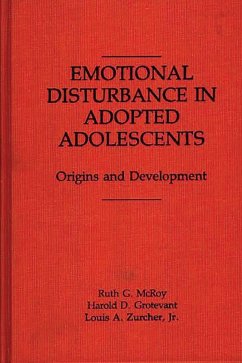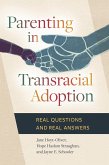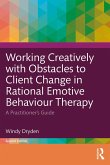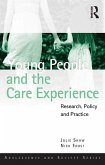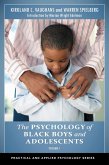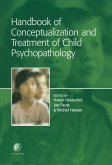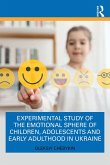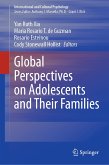A report of research on two groups of residentially placed, emotionally disturbed adolescents compared on the basis of their adoptive status. A post hoc comparison with a nondisturbed adoptive group is also included. . . . McRoy, Grotevant, and Zurcher examine factors related to adoption that may contribute to the development of emotional difficulties. The authors' suggestions are worthy of consideration by professionals in the field. . . . The theoretical reviews of potential sources of difficulty in adoption are well done and informative, and the presentation of the perspectives of both adoptees and adoptive parents is also laudable. Choice Many adopted children experience emotional disorders during adolescence that require residential treatment. This volume reports research findings comparing adopted and non-adopted adolescents in treatment. The authors first discuss the difficulties of the adolescent period itself, particularly as it relates to identity problems. Based on extensive interviews with adoptive and non-adoptive parents, adolescents, and their therapists, successive chapters analyze genetic risk and prenatal care, explore the impact of family and peer relationships, examine familiar and contextual factors that initiate and maintain emotional problems, and examine adoptive family dynamics and adoption issues in nonclinical families. The various theoretical perspectives research findings, and well-reasoned recommendations in this volume will interest social workers, clinical and developmental psychologists, and special education professionals.
Bitte wählen Sie Ihr Anliegen aus.
Rechnungen
Retourenschein anfordern
Bestellstatus
Storno

